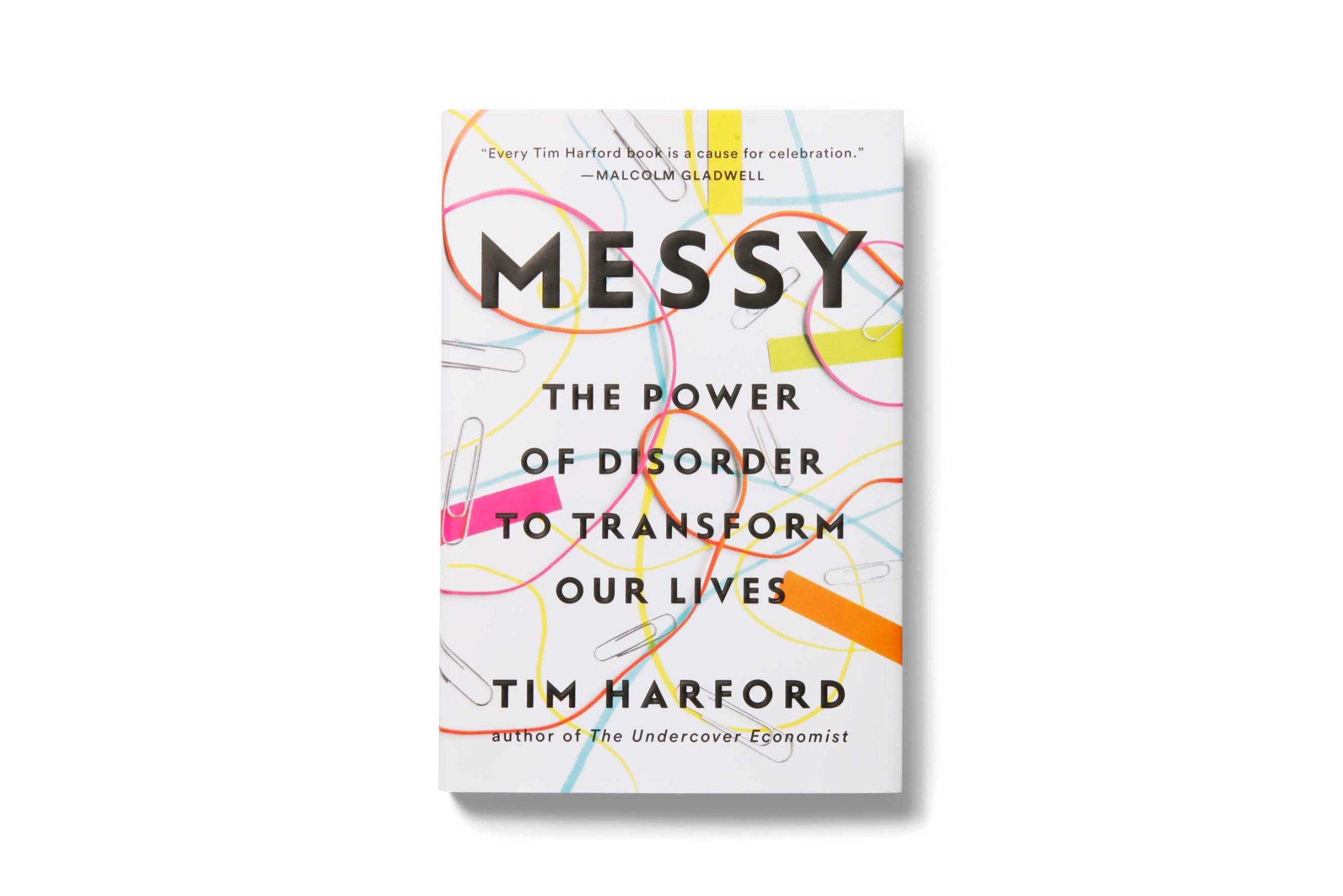
“Lots of people tolerate mess,” a friend once observed while looking at my living room, strewn with clothes, dishes and junk mail. “You’re the only one I know who seems to have a positive preference for it.” So you can imagine my initial thrill at the title of Tim Harford’s Messy: The Power of Disorder to Transform Our Lives. Vindication, at last!
Well, sort of. Messy is neither a broadside at Marie Kondo and her cult of minimalism nor a case for the hidden virtues of hoarding. Harford, an acclaimed economics journalist, isn’t so much extolling squalor as questioning the notion that order is inherently preferable for creative endeavors. As a society, “we like tidiness to the point of fetishizing it,” he says. “We find clutter and irregularity disturbing and don’t notice when it is doing us good.”
In chapters organized by theme (“Incentives,” “Workplaces,” “Automation”) Harford explores the often unconventional–messy, you might say–habits of such figures as Jeff Bezos, General Erwin Rommel and Miles Davis. In each case, we see the subject defying norms of tidiness and organization in order to innovate and even revolutionize. Steve Jobs physically upended the offices of Apple to foster collaboration; Martin Luther King Jr. improvised some of his most iconic lines. Meanwhile, Harford delves into research that analyzes and explains the benefits of thinking outside the box (emptied on the floor).
He also touches on the long history of our conviction that neater is better. Benjamin Franklin, successful by almost any measure, bemoaned his personal untidiness. He wrote in his autobiography, “My scheme of order gave me the most trouble.” Even to our freethinking Founding Father, there was no possibility that his chronic sloth might be bound up with his inventiveness. (Of course, none of the successes we read about occurred in conditions of absolute chaos; as Harford points out, a messy desk isn’t going to turn most people into Keith Jarrett.)
According to Harford, our reflexive reliance on the systematic is not merely shortsighted but dangerous, particularly given the rise of technologies that “supplant–rather than support–human decisionmaking.” Then, too, unexamined devotion to a sclerotic political system can leave that system prone to disruption, as evinced by the presidential campaign.
Part of the societal problem with idiosyncrasies is that they are personal. They are hard for others to penetrate and map, and as such, they are not replicable. Just as efficiency and systems fail to account for human variables like feeling and inspiration, so too are they threatened by human variables. We’d be wise, then, if not to dwell in squalor, to at least make room for flexibility. As some might reason, it’s a highly organized argument for chaos.
More Must-Reads from TIME
- Donald Trump Is TIME's 2024 Person of the Year
- Why We Chose Trump as Person of the Year
- Is Intermittent Fasting Good or Bad for You?
- The 100 Must-Read Books of 2024
- The 20 Best Christmas TV Episodes
- Column: If Optimism Feels Ridiculous Now, Try Hope
- The Future of Climate Action Is Trade Policy
- Merle Bombardieri Is Helping People Make the Baby Decision
Contact us at letters@time.com